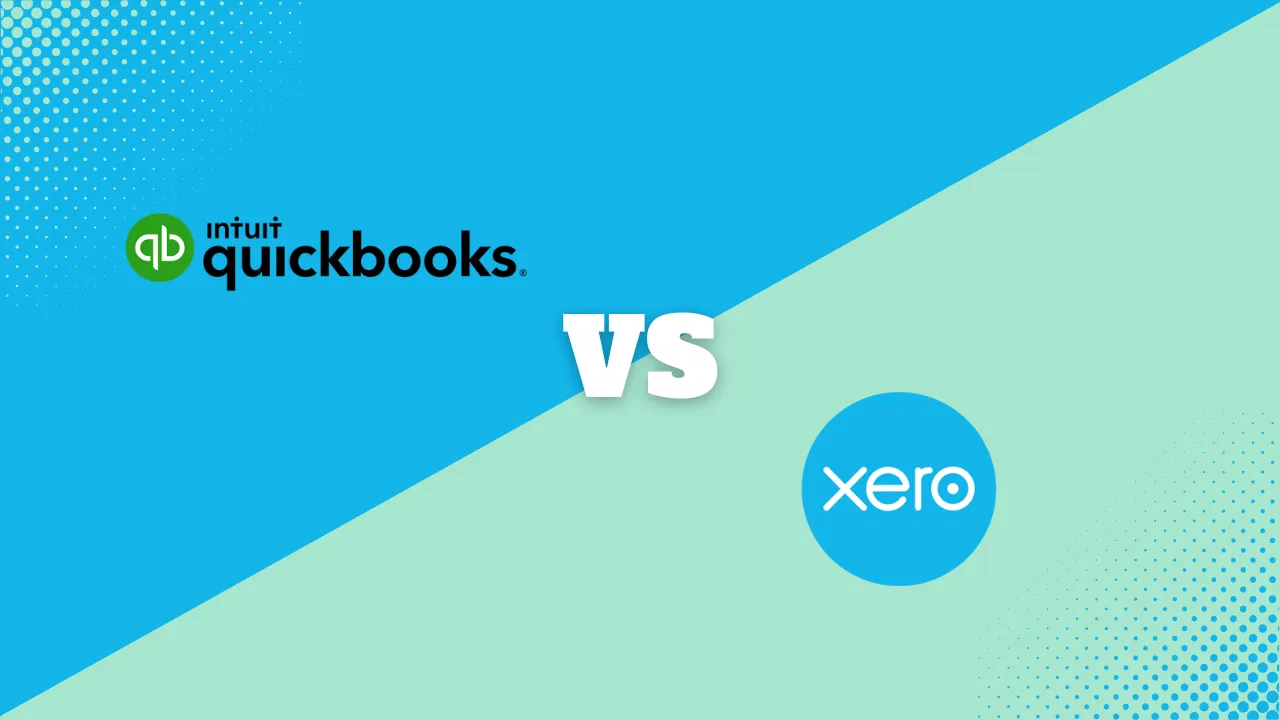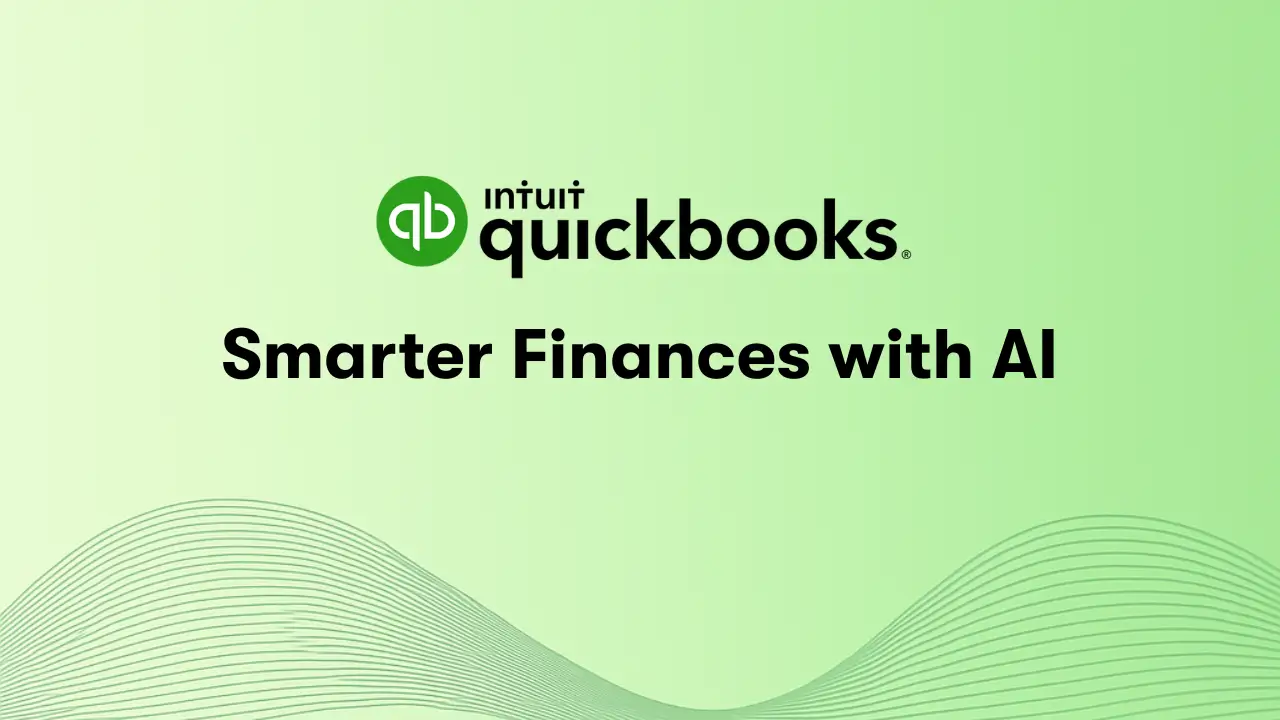Best Real Estate Accounting Software
Last updated: September 2025
Unlocking your real estate business's full potential starts with finding the best real estate accounting software for your needs. A great platform gives you complete control over your unique financial world, from tenant ledgers and property-specific expenses to trust accounting and investor reporting. Imagine upgrading your real estate bookkeeping from a maze of spreadsheets to a single, streamlined system designed for property management. This move simplifies your operations and gives you a crystal-clear view of your portfolio's performance. It’s about choosing a solution that transforms your financial management from a daily chore into your most powerful tool for growth.
- Unlimited custom invoices and quotes
- Smart invoicing with automated tracking
- Save an average of $2,100+ per year
- Streamline onboarding
- Global bank connectivity
- Effortless invoicing
- Global business management compliance
- Speeds up the financial closing process
- See metrics in real-time
- Accounting A to Z
- Account reconciliation & secured banking
- Inventory, sales & billable hours management
- Serves over 20K businesses
- Custom solutions by experts
- Collaborate with 100+ integrations
- All-in-one business management system
- Easily manage your purchasing process
- Generate robust financial reports in seconds
- Free 60 day trial with unlimited use
- Easy start up wizard
- Top rated for value, features & support
Finding the Best Real Estate Accounting Software: A 2025 Review
Choosing the best real estate accounting software is a critical decision that directly impacts your efficiency and profitability. The right platform does more than just basic bookkeeping; it provides clear insights into your portfolio’s performance, streamlines rent collection, and simplifies complex tasks like CAM reconciliations and investor reporting. This guide reviews top accounting software, analyzing their suitability for the unique financial demands of the real estate industry, from single-property owners to large-scale development firms.
1. QuickBooks
QuickBooks, by Intuit, is one of the most popular general accounting software solutions on the market. Available in both a cloud-based version (QuickBooks Online) and a desktop version, it provides a robust platform for invoicing, expense tracking, financial reporting, and tax preparation for small to medium-sized businesses.
 Unlimited custom invoices and quotes
Unlimited custom invoices and quotes  Smart invoicing with automated tracking
Smart invoicing with automated tracking Why it’s great for real estate: QuickBooks is the versatile foundation for new and growing real estate businesses. Its power lies not in native real estate features, but in its flexibility and unparalleled ecosystem of third-party integrations. Using its “Class Tracking” or “Location Tracking” features, you can effectively segment finances for each property, providing a basic P&L statement per unit or building.
Pros for the Real Estate Industry:
✓ Vast Integration Market: Seamlessly connects with hundreds of dedicated property management software platforms (like AppFolio, Buildium, etc.), which handle the tenant-facing tasks while QuickBooks manages the core accounting.
✓ Accountant Familiarity: Nearly all accountants and bookkeepers are proficient with QuickBooks, making collaboration and tax time significantly easier.
✓ Scalable Plans: QuickBooks Online offers multiple tiers, allowing you to start simple and add features as your portfolio of properties grows.
✓ Strong Mobile App: Allows for on-the-go expense tracking, receipt capture, and financial review, perfect for property managers who are rarely at a desk.
Cons for the Real Estate Industry:
× Lacks Native Real Estate Features: Does not have built-in modules for lease management, rent roll reporting, or CAM (Common Area Maintenance) reconciliations.
× Workarounds Required: Relies on manual setup of “Classes” or “Locations” to track property performance, which can become cumbersome and error-prone for large portfolios.
× Not Ideal for Trust Accounting: While possible, managing security deposits and other trust funds requires careful manual processes to ensure compliance, which dedicated software automates.
2. Xero
Xero is a modern, cloud-native accounting platform and a direct competitor to QuickBooks Online. It’s known for its user-friendly interface, strong mobile capabilities, and features like bank reconciliation, expense claims, and detailed project tracking.
 Streamline onboarding
Streamline onboarding  Global bank connectivity
Global bank connectivity Why it’s great for real estate: Xero is an excellent choice for real estate professionals who prioritize a modern user experience and collaborative features. Its pricing model, which includes unlimited users on all plans, is a significant advantage for growing real estate teams with multiple partners, property managers, and administrative staff needing access.
Pros for the Real Estate Industry:
✓ Unlimited Users: Allows your entire team, from leasing agents to maintenance coordinators, to access the system without incurring extra costs per user.
✓ Powerful Project Tracking: Its “Projects” feature can be adapted to track financials for large renovations, development projects, or even individual properties, monitoring budget vs. actuals.
✓ Excellent Integration Ecosystem: Similar to QuickBooks, Xero connects to a wide array of specialized real estate bookkeeping and property management applications.
✓ Clean, Visual Reporting: The dashboards and reports are intuitive, making it easy to get a quick overview of your portfolio’s financial health.
Cons for the Real Estate Industry:
× No Industry-Specific Modules: Like QuickBooks, it lacks native features for rent rolls, lease abstraction, or automated late fee calculations.
× Tracking Categories Have Limits: Xero’s version of class tracking (“Tracking Categories”) is powerful but has limitations, which may be insufficient for highly complex ownership structures or funds.
× Less Accountant Familiarity in the US: While globally popular, the pool of US-based accountants specializing in Xero is smaller than for QuickBooks.
3. Oracle NetSuite
Oracle NetSuite is a comprehensive, cloud-based ERP (Enterprise Resource Planning) platform, not just an accounting tool. It’s designed for large, complex businesses and combines financials, CRM, e-commerce, and more into a single, unified system.
 Global business management compliance
Global business management compliance  Speeds up the financial closing process
Speeds up the financial closing process Why it’s great for real estate: NetSuite is the powerhouse solution for large real estate investment trusts (REITs), developers, and enterprise-level property management firms. It’s built to handle immense complexity, including multi-entity ownership, intricate fund structures, and global operations, providing unparalleled control and insight into portfolio performance.
Pros for the Real Estate Industry:
✓ True Multi-Entity Accounting: Seamlessly manage financials for dozens or hundreds of separate legal entities (LLCs for each property) within one system, with automated intercompany eliminations.
✓ Highly Customizable: Can be tailored with specific modules and workflows for construction, property management, and asset management, including sophisticated job costing.
✓ Advanced, Granular Reporting: Provides deep, customizable reporting capabilities essential for institutional investor reporting and compliance.
✓ Unmatched Scalability: The platform is designed to grow with the largest and most complex real estate enterprises without performance degradation.
Cons for the Real Estate Industry:
× Prohibitively Expensive: The cost of licensing, implementation, and customization is substantial, making it unsuitable for small or mid-sized businesses.
× High Complexity & Steep Learning Curve: Requires significant training and often dedicated administrative staff to manage effectively. Implementation can take months.
× Overkill for Standard Property Management: If your primary need is standard rent collection and expense tracking, NetSuite’s power is unnecessary and overly complex.
4. Zoho Books
Zoho Books is a cloud-based accounting application that is part of the extensive Zoho One suite of business tools. It’s known for its clean interface, end-to-end financial management capabilities, and exceptional value.
 Accounting A to Z
Accounting A to Z  Account reconciliation & secured banking
Account reconciliation & secured banking Why it’s great for real estate: Zoho Books is the best real estate accounting software for businesses that want an all-in-one ecosystem on a budget. If you already use or plan to use tools for CRM (managing investor/tenant relationships) and project management (tracking renovations), Zoho’s seamless integration between its products is a massive advantage.
Pros for the Real Estate Industry:
✓ Unbeatable Value: Offers a feature-rich accounting platform at a fraction of the cost of its main competitors.
✓ Seamless Ecosystem Integration: Flawlessly connects with Zoho CRM, Zoho Projects, and other apps, creating a unified command center for your entire real estate operation.
✓ Strong Automation Features: Create custom workflows to automate tasks like invoicing tenants, sending payment reminders, and categorizing expenses.
✓ Tagging for Property Tracking: Use transaction “Tags” to segment and report on financials by property, similar to class tracking in QuickBooks.
Cons for the Real Estate Industry:
× Generic Accounting Core: Lacks specialized real estate reports and features out of the box.
× Smaller Third-Party App Marketplace: While its own ecosystem is strong, its marketplace for external real estate-specific apps is less developed than that of QuickBooks or Xero.
× Can Be Complex to Set Up: The sheer number of features and settings across the Zoho suite can be overwhelming for new users.
5. Sage Intacct
Sage Intacct is a best-in-class, cloud-based financial management platform aimed at mid-market and growing businesses. It is particularly strong in multi-entity consolidation, project accounting, and providing deep financial visibility.
 Serves over 20K businesses
Serves over 20K businesses  Custom solutions by experts
Custom solutions by experts Why it’s great for real estate: Sage Intacct is a significant step up from small business software and is purpose-built for industries with complex financial structures, like construction and real estate. It provides the sophisticated financial management for real estate that growing firms need without the full cost and complexity of an ERP system like NetSuite.
Pros for the Real Estate Industry:
✓ Powerful Dimensional Reporting: Go beyond simple classes by using “Dimensions” to tag transactions by property, legal entity, manager, project, and more, for incredibly detailed reporting.
✓ Strong Construction/Job Costing Modules: A perfect fit for real estate developers who need to track project budgets, commitments, and profitability from land acquisition to sale.
✓ AICPA Preferred Provider: A testament to its robust accounting controls and audit trail capabilities, which is crucial for compliance and investor reporting.
✓ Automated Multi-Entity Management: Simplifies the process of managing a portfolio of properties held in separate legal entities.
Cons for the Real Estate Industry:
× Higher Price Point: Significantly more expensive than small business platforms like QuickBooks, Xero, or Zoho.
× Implementation Requires Expertise: Setting up the dimensions and modules correctly to fit your real estate business requires a certified partner and careful planning.
× Not a Full Property Management Suite: Still requires integration with other software for the operational side of managing tenants and leases.
6. Striven
Striven is an all-in-one cloud ERP solution designed for small to mid-sized businesses. It aims to unify many different business functions-accounting, CRM, project management, inventory, and HR-into a single platform to reduce the need for multiple, disparate software subscriptions.
 All-in-one business management system
All-in-one business management system  Easily manage your purchasing process
Easily manage your purchasing process Why it’s great for real estate: Striven is a strong candidate for a real estate brokerage or management company that wants to consolidate its tech stack. By having CRM for agent/client tracking, projects for property flips or renovations, and accounting all in one place, it can significantly streamline finances and operations, reducing data entry and integration headaches.
Pros for the Real Estate Industry:
✓ True All-in-One Platform: Combines accounting with a powerful CRM and project management tools natively, without needing third-party integrations.
✓ High Degree of Customization: Offers extensive custom fields and customizable dashboards, allowing you to tailor the system to track property-specific data points.
✓ Potentially Lower Total Cost of Ownership: May be more cost-effective than paying for separate high-tier subscriptions for accounting, CRM, and project management software.
✓ Centralized Data: Having all operational and financial data in one system provides a holistic view of the business.
Cons for the Real Estate Industry:
× Jack of All Trades, Master of None: While comprehensive, its individual modules (like accounting) may not be as deep or feature-rich as standalone best-in-class solutions.
× Learning Curve: An all-in-one system has many interconnected parts, which can take time to learn and configure properly for a real estate workflow.
× Not Specifically Designed for Real Estate: Requires creative use of its existing features (like projects or custom fields) to manage property-specific financials.
7. Patriot Accounting
Patriot Software provides simple, affordable online accounting and payroll software targeted at American small business owners. Its main selling point is its no-frills, easy-to-use approach to core bookkeeping tasks.
 Free 60 day trial with unlimited use
Free 60 day trial with unlimited use  Easy start up wizard
Easy start up wizard Why it’s great for real estate: Patriot Accounting is a solid choice for the solo landlord, part-time investor, or small business owner with a very simple portfolio (e.g., 1-3 properties). It handles the essential tasks of tracking income and expenses without the complexity or cost of more advanced systems.
Pros for the Real Estate Industry:
✓ Extremely Affordable: One of the lowest-cost options on the market, perfect for those just starting out or with tight budgets.
✓ Very Easy to Use: The simple, clean interface makes managing basic real estate bookkeeping easy without any prior accounting knowledge.
✓ Integrated Payroll: Seamlessly adds on a low-cost, full-service payroll option if you have employees (e.g., an administrative assistant or maintenance staff).
✓ US-Based Support: Offers free, unlimited support from a US-based team.
Cons for the Real Estate Industry:
× Very Basic Features: Lacks any mechanism for property segmentation (no class or project tracking). You cannot produce a P&L by property.
× No Scalability: Will be quickly outgrown as soon as your portfolio expands or your financial needs become more complex.
× Limited Integrations: Does not have a marketplace for connecting to specialized property management software.
× Cash-Basis Only in Basic Plan: The most affordable plan is cash-basis only, while most real estate businesses require accrual-basis accounting.
Key Features to Look For in Real Estate Accounting Software
When comparing options, prioritize platforms that offer these critical features, either natively or through seamless integration:
-
Property-Specific Segmentation: The ability to tag every income and expense transaction to a specific property, unit, or project. This is essential for generating a Profit & Loss statement for each of your assets.
-
Robust Reporting: Look for software that can generate key real estate reports like Rent Roll, P&L by Property, and detailed budget vs. actuals for renovations.
-
Trust Accounting Compliance: If you hold tenant security deposits, the software must be able to manage these funds in a separate liability account to ensure you remain legally compliant.
-
Automation Capabilities: Features that automate recurring invoices for rent, calculate late fees, and streamline bank reconciliations save enormous amounts of time.
-
Scalability: Choose a solution that can grow with you. The best real estate accounting software for two properties will not be the best for twenty.
-
Integration with Property Management Tools: The ability to sync financial data from your property management system (which handles leasing, maintenance requests, and tenant communication) is crucial for efficiency.












